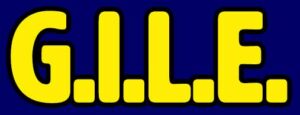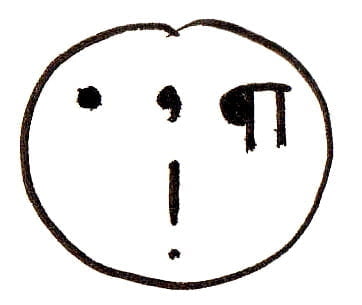
Last week I attended a webinar put on by the Society of Authors on the subject of AI (Artificial Intelligence).
From the chat in the sidebar, it seems this is a subject that some authors are getting pretty worked up about. I should point out that Author covers everyone from Shakespeare to a Geography textbook writer to a Hot, racy novelist and even children’s authors.
All we authors have in common is that we write stuff that gets turned into books and plays, TV and Films etc. At general meetings I often feel that I have very little in common with my fellow authors and truly wonder at some their obsessions that have no bearing on the life or work of children’s author.
There seem to be two main complaints.
- That AI is trained on the copyrighted work of others without recompense.
- That using AI is sort of, somehow, kind of, well… cheating.
The first complaint is quite true, but nothing will come of it. There is more than enough wriggle room in copyright law to get AI off the hook.
The second… well, where do you stop or even start with this argument?
Celebrities and their ghost writers… isn’t that sort of cheating? Who is the author there? I know who claims the glory!
For that matter, isn’t it cheating using an editor? Some editors pretty much write their author’s books for them, even instigating the original ideas. Is a commission cheating? Shouldn’t an author be wholly responsible for their ideas? Is a thesaurus cheating – a dictionary?
Where do you stop? Is Microsoft Word cheating? Scrivener? The printing press? Shouldn’t we be true to ourselves and write single editions in exercise books with fountain pens – or is that cheating too? Better to write manuscripts with quill pens on vellum or, better still, make marks in wax or clay.
Why write at all? Let’s stick to the oral tradition.
Can you see an evolution going on?
I’ve had a break from writing this year, but I’m starting again. In February, I was ready to publish the first of a trilogy – Generation Moon. Then my mother died a few days before my launch. I eventually published it quietly thinking I’d make a big thing of the next book, but it has taken most of the year to get back in the saddle.
One of the things that got me interested again was the very recent introduction ofopenAI’s GPTs, which are personal apps that you can train yourself. I’ve called mine G.I.L.E. (pronounced Jilly to make it more friendly – I’ll call her that from now on.) G.I.L.E. stands for Generative Investigative Literary Editor.
She is a great investigator, rushing off to research the internet for me, finding good stuff in moments. Her marketing advice is spot on. I know this because I’ve read all the books and done the same courses she’s probably been trained on!
I’ve asked her to take on the persona of “the girl next door” as that is the friendliest voice I’ve had come back to me. GPT4 on its own, and other AIs, can be a bit brash , straight out of the box. InflectionAI’s Pi is particularly insensitive, throwing emojis around like a 12 year old.
So, I am in the process of “training” Jilly. It’s hard work. She makes very wrong assumptions if you don’t word prompts precisely,. But that is good. It makes you think about what you are asking.
So far I’ve been asking about her capabilities and getting to know her. We have a project set up to finish the trilogy, including marketing plans. Already she has given me good ideas on that front that I’ve already put into practice. (You can’t start marketing too early!)
Working with Jilly is bit like the good old days of long publishing lunches – throwing ideas around in a relaxed, friendly atmosphere. (Ah those were the days – before M&S sandwiches!)
A major concern of my fellow authors on the webinar was that we should not have help with plot points or anything creative. But I disagree.
If I asked Jilly to write the books for me, I’d be bored and I think they would turn out quite generic. It would be interesting to see if she wrote in my voice, were she given enough material to work with. Of course she might write something brilliant! Maybe I should ask her to do that at the end and compare.
It’s a process.
I ask. She suggests. I dismiss and ask again (or maybe add a what if?)
She comes back to me, like a Duracell Bunny, with new suggestions. One of which may pique my interest, setting of thoughts and ideas which I return to Jilly, who again bats back her suggestions.
Often a returned suggestion takes me straight away from my keyboard and to my sketchbook, to start drawing up an idea that I want to work out myself.
You know… that’s pretty much how I’d work with an editor! Eventually my head is so full I have to go and write it all down – on my own. Me, myself, I. If my two finger typing wore me out, I might resort to voice to text – is that cheating?
AI is here. It’s not going away anytime soon. As you will keep hearing – it is a tool.
I use photoshop a lot. You should what you can do with images now, and with only with typed or spoken prompts!
I have no doubt that in a very short time AI will be writing best-selling titles and creating compelling entertainment and educational materials – (it is already). If that’s the way it’s to be, then I’d rather start working with Jilly now and get her trained up so I can at least I can play a small part in the process in the future. That’s when I hope to be invited to join the Society of Prompters.


 Sometimes, when I hear of the complicated grammar that primary children have to learn, I want to cry. The grammar that the curriculum requires them to learn is not to help them read or write, but to help academic examiners tick boxes.
Sometimes, when I hear of the complicated grammar that primary children have to learn, I want to cry. The grammar that the curriculum requires them to learn is not to help them read or write, but to help academic examiners tick boxes.